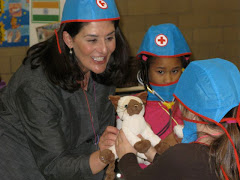Kahne & Westheimer
In The Service Of What? The Politics of Service Learning
1. “By engaging in meaningful service – whether tutoring children for whom English is a second language, helping patients in a hospital, doing difficult chores for the elderly, or supervising younger children’s recreational activities – students will have opportunities to experience what David Hornbeck, former Maryland state superintendent, referred to as “the joy of reaching out to others.”
In the reading they are discussing High School students and mandatory volunteer/charity work in their school or community as part of their graduation requirement referencing Mr. Johnson’s project and students who participated and were aware of their contributions toward helping others and eager to continue their work. I agree that service learning can be a rewarding requirement for students but it does need to be in combination with the reflection or analysis discussed later in the reading to develop to the “change” level goals they are looking for. To find the caring, social reconstruction, and transformative experience they are looking for.
2. “The experiential and interpersonal components of service learning activities can achieve the first crucial step toward diminishing the sense of “otherness” that often separates students - particularly privileged students– from those in need. In so doing, the potential to develop caring relationships is created.”
The reading is discussing the importance of service learning in decreasing “otherness” by creating interpersonal interactions and experiences which will encourage the development of altruism and caring. In the development of these caring relationships the “otherness” can diminish. The example given in the reading with the parents concern for the students going into a “bad neighborhood and …be careful” to students returning stating “Everyone at the school had good manners, and I think more highly of (the neighborhood) now” was a great example.
3. “it is the combination of service and critical analysis, not either by itself, that seems most likely to promote interest in and insight into these complex social issues.”
Again, the reading is clearly making the valid point; service learning alone can be a learning experience for students on a wide spectrum. Service learning can range from “I was charitable and participated in a civic duty and was giving” to “I care about these people and their rights and I’m going to do something about it” and act more politically than locally.
This was an interesting reading to me and relevant to our class. I was thinking of our service learning projects and the work we are doing with the students. I certainly see the benefits for myself in the service learning aspect of this class and in reflecting and writing the journal. Because we are working with young children we can’t have a conversation with them about their lives but, you certainly develop a caring relationship about them quickly. You want to see them develop and improve; you hope that you have contributed to that development.
Sunday, March 21, 2010
Subscribe to:
Post Comments (Atom)

No comments:
Post a Comment